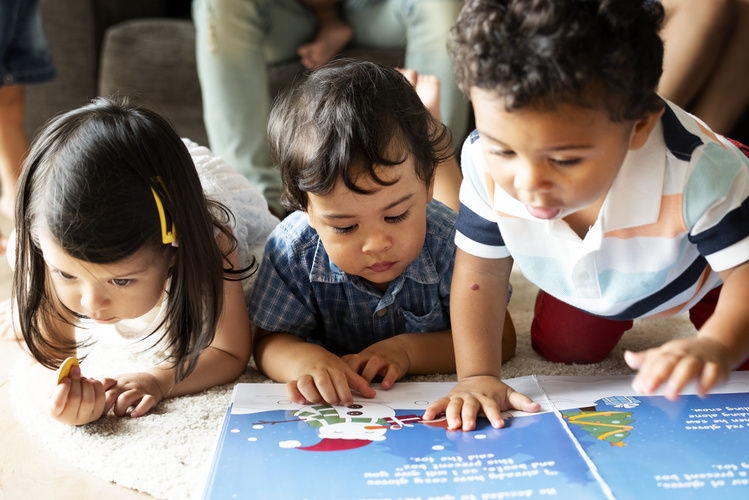Toddlers experience a spurt in their development between 12 months and 36 months. They build upon a whole range of skills that they may just have experienced – like steps and words – to become young children within just a couple of years.
All children develop at their own pace and may learn some skills more quickly whilst others take longer. The timing for these developmental milestones is just a rough guide and will not apply to all children.
Mobility
The groundwork of infancy – when your baby learned to crawl and take their first steps – will now pay off. Between months 12 to 36 roughly, your toddler will add running, jumping, climbing and other activities to their repertoire. Toddlers can also navigate stairs, kick and throw balls and will usually show a preference for one hand over the other by 24 months.
Reading
Some three- and four-year-old children might recognise a simple word as a sort of whole – like a picture – and associate it with the picture it's next to. But for many toddlers reading consists of recognising and naming objects and animals they see in picture books.
You can help your toddler develop a good relationship with books and literacy by reading often and reading together. You may need to keep storytime brief, though, as many toddlers have short attention spans and are unlikely to sit still for long.
Toilet training
Around 24 months old, your toddler might start showing an interest in using the toilet. You can encourage a measure of self-control by asking your toddler questions about when or if they need to go to the toilet and then taking them to the bathroom. Start with a potty or a toilet training seat and practice by seating them on it before they need to go. When to start toilet training is a personal choice and will depend on when you think your child is ready for this.
Speech
By the time your baby turns one, they might have picked up a simple word or two like "mama" or "dada" – within the first few months they'll likely add a handful to these. But as they approach 24 months, your toddler should understand many more. Once they've turned two, children usually start to rapidly increase their vocabulary and be able to speak in short, simple sentences but this may not happen for all. By their third birthday, many toddlers can follow and give instructions, ask questions and can be much more clearly understood.
Thinking
Your toddler will quickly develop and understand a range of different concepts that adults take for granted, such as the relationships between time and space, enduring qualities of things, like balls are round and adults are tall, and looking for and finding things that are out of sight. With developments in their speech, toddlers can follow (or choose to ignore) more complex instructions and can even give their own.
Emotions
As communication skills develop, toddlers can also start to understand the 'why' of things, and therefore can be easier to reason with and settle down. Toddlers aren't frightened as easily now that they know why sirens are loud or why dogs bark. And you might find that although your toddler throws the odd temper tantrum, they might also self-soothe and move on to do something that they enjoy.
Remember that everyone learns at different rates. However, if you have concerns about your child’s development, for example about their language or motor skills, you may wish to consult with your GP.
Recommended Articles:
https://www.babybunting.com.au/baby-talk-blog/how-to-toilet-train-your-toddler//
https://www.babybunting.com.au/baby-talk-blog/introducing-your-toddler-to-playdates/



